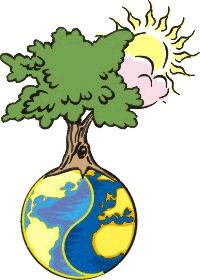 |

Catalyzing personal empowerment, societal transformation, and environmental sustainability
|
|
"The major problems in the world are the result of the difference between how nature works and the way people think." |
||
|
Home About Us: Overview Philosophy Mission & Vision History Biographies Our Three Branches: Registration Forms Contact Information Projects Articles EcoQuotes Links Donate |
Growth at Any Cost?A Natural Systems ResponseDave Ewoldt, April 2006There are many systemic problems facing our region today: Peak Oil, global warming, the loss of our sovereignty to corporatism, and the one with the most clearly visible local impact--growth. I'm tempted to say senseless growth, but growth actually makes a lot of sense--if you believe that money is more important than life itself, or any of the other numerous, sometimes subtle, variations on this story. Over the coming months I'll be focusing on growth issues, and how a natural systems perspective can wisely inform our responses to the myriad ways growth negatively impacts our lives, lifestyles, and communities. I'll be examining the veracity of the growth stories we place our faith in and base our future prosperity on. So I'll first lay the foundation and define the terms I'll be using--making this the driest and most academic of these columns, but I'll only have to do it once so please bear with me. There are four main principles of natural systems: mutual support and reciprocity, no waste, no greed, and increasing diversity. All organisms, from bacteria on up, are living systems that self-organize to create mutually supportive relationships. Life is self-creation in constant search of supportive relationships that benefit the whole so it may better support and sustain the individual. There is a dynamic, evolving relationship between and amongst living systems and their environment. The process of developing mutually supportive attraction relationships is the activity of life. All living systems, whether an otter or an old growth forest, grow to a point and then reach maturity. They quit growing in size but they don't quit developing, changing, and evolving. All living systems strive for sustainability within the carrying capacity of their environment. Organizations and societies are also living systems that should adhere to these principles not just to be sustainable, but to adapt to and benefit from the inevitable change in a dynamic universe. Sustainability is not really an "environmental" movement--it is a community movement. Humans are part of the ecosystem, and we thrive when we integrate our economic and social lives into the environment in ways that maintain and enhance it rather than degrade or destroy it. Sustainability includes the concepts of equity, trusting relationships, cooperation for the common good, and commitment to place. Sustainable development is development that meets the needs of the present without compromising the ability of future generations to meet their own needs. Development is NOT growth, but a means to improve; make better; to bring to a more advanced or effective state. Living within the carrying capacity of a region is a basic component of sustainability. Carrying capacity depends on available resources, per capita consumption, and regenerative capabilities. Sustainability is thus about finding the balance point among population, consumption, and waste assimilation. There are three types of community capital--natural, social, and financial/built--that a sustainable community seeks to maintain and enhance. Our goal is to live off the interest, and not use up the principle. This can be achieved by paying attention and strengthening the relationships between these three pillars of a sustainable community. A few of my basic premises regarding growth are that continuous growth is neither inevitable nor do we have to accommodate it; excessive growth is uneconomic and both physically and spiritually damaging; and there is no legal or constitutional requirement that the government guarantee every land owner the most profitable possible use of their land. Finally, if you're as alarmed as I by the prospect of our beautiful region transforming into Anywhere USA, there is a sound basis for optimism, and a way you can participate in meaningful change. The systemic problems I first mentioned have a common systemic solution known as relocalization. This concept means becoming regionally self-reliant in food, energy, and local economies based on renewable and non-polluting resources. These are a few of the things I'll be delving into in more depth in the coming months. I also hope these columns can stimulate conversation and our creativity. Please get in touch if you have a comment or question on growth, natural systems, or especially their interdependence. See you next month. If you would like to schedule an introductory consultation session or arrange a presentation or workshop for your group, please contact nature@attractionretreat.org or give Dave or Allison, co-founders of Attraction Retreat, a call at (360) 756-7998. |
|
"You didn't come into this world. You came out of it, like a wave from the ocean. You are not a stranger here." |
||